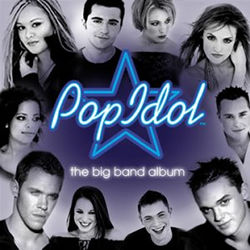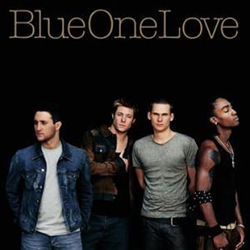Liam Carey reviews
Part One
 There was a time, believe it or not, when the surest means of capturing the enduring spirit of music from any calendar year would be by looking back over the Top 40 Singles charts of that particular 12 months. Sadly, that time has passed.
There was a time, believe it or not, when the surest means of capturing the enduring spirit of music from any calendar year would be by looking back over the Top 40 Singles charts of that particular 12 months. Sadly, that time has passed.
In 2002, all that you’ll find are damning indictments of an industry gripped by a contagious dose of arrogance, washed down with a chronic inability to recognise and champion originality and variety. For the business end of the pop music charts during 2002 have been characterised by overwhelming blandness and cynicism, as well as a woeful lack of adventure. Having reduced the charts themselves to a worthless marketing tool, the UK music industry needed to find fresh impetus to maintain their corporate clout. With the willing aid of an equally neutered and self-deluded media and radio network, pop’s profile within society as a whole – let alone youth culture – has risen to saturation levels, bloated by its own hyperbole and aggressive promotion.
In broad terms, the year will be remembered for its TV-driven phenomena; Pop Idol, Popstars:The Rivals and (to a lesser extent) Fame Academy. Pop has somehow become indistinguishable from Showbusiness, its artistic and creative currency reduced to karaoke wannabes made overnight “stars” by controlling self-styled svengalis. As genuine individualism is muted across the entertainment spectrum, and the bottom-dollar maxim exerts its hold, the result is a great mass of generic ordinariness… and worse, a complete drop in standards. Such is the desperate desire to gain the widest/biggest/most lucrative audience; pop music (like television, magazines and radio) has actively sought to aim for the lowest common denominator. Sex.
 Hold on a moment, hasn’t sex always been part of pop since rock’n’roll exploded into life in the mid-1950s? Well, yes, but typically of current trends, the boundaries have been pushed to the point where it’s impossible to tell where pop culture ends and pornography begins. By nature, pop is a medium always searching for new thrills, and opportunities to shock.
Hold on a moment, hasn’t sex always been part of pop since rock’n’roll exploded into life in the mid-1950s? Well, yes, but typically of current trends, the boundaries have been pushed to the point where it’s impossible to tell where pop culture ends and pornography begins. By nature, pop is a medium always searching for new thrills, and opportunities to shock.
Yet, infamous exploits from the past pale in comparison to the 2002 model of pop music, both in its unabashed targeting of an ever-younger demographic and, dispiritingly, its absolute absence of intellectual or social dynamic other than to brazenly declare – through words and/or actions – “look at me”, “I’m feeling so horny”, “I want to sleep with you” or “hey, we’re having a party”. Previous generations of pop either addressed serious taboos or discriminations, challenged political climates, or revelled in a sense of wilful experimentation and endless possibilities. Today’s incarnation can claim none of these attributes.
Talent must surely be the most used and abused term in discussions and appraisals of modern pop music. In a bizarre development, the Blues and Liberty Xs of this world have been hailed as “true talents”. To wit: they can hold a tune (in an over-emoting, Mariah/Whitey way); hence they have “real talent”. They aspire to contribute a few platitudes of their own to the committee-written, vacuous paeans to lurve or partying; hence they are a “real talent”.
If they can do both, and jig about in rigidly choreographed, synchronised fashion in front of grinning, gurning goons… all the better; they possess “star quality”. As well as “real talent”, of course. It would be hilarious if such perceptions were not so earnestly applied as the gospel, cleverly instilling in impressionable children and teenagers the idea that being famous is now a desirable ambition in itself, and being competent in the above disciplines will help you achieve this shallow goal.
 Exploitation within the music industry has been rife throughout its existence, from the old bluesmen of the 1930s and 40s onwards through Beatlemania, Punk and Britpop, but at some point the exploited young apprentices shifted the balance of power through creative achievements which brought radical changes in attitude. One wonders where the next challenge to the industry’s current position of seemingly absolute power can come from. The long-anticipated technological revolution, which they so feared, has actually worked in their favour, merely presenting them with an immediate worldwide audience only too eager to indulge in the shallow lifestyle pursuits that the media serves up every minute of the day.
Exploitation within the music industry has been rife throughout its existence, from the old bluesmen of the 1930s and 40s onwards through Beatlemania, Punk and Britpop, but at some point the exploited young apprentices shifted the balance of power through creative achievements which brought radical changes in attitude. One wonders where the next challenge to the industry’s current position of seemingly absolute power can come from. The long-anticipated technological revolution, which they so feared, has actually worked in their favour, merely presenting them with an immediate worldwide audience only too eager to indulge in the shallow lifestyle pursuits that the media serves up every minute of the day.
At its worst, the in-your-face bump’n’grind of Christina Aguilera‘s Dirrty, Kiss Kiss and Down Boy by Holly Valance, Justin Timberlake‘s Like I Like You signalled a brave new dawn for pop; a joyless, tune-free expression of lust and incitement to “freak”, as it’s continually known these days. The accompanying videos merely hammered home the clinical, airbrushed approach and explicit posturing. Prince and Madonna, to name but two, made careers from pushing sex to the forefront of their music and image, but they both had proper songs and a powerful vision to carry it off. Lemmings to a man, the entire industry succumbed to unnecessarily sexualisation of their entire output, and the charts became a graveyard for any act unwilling or unable to compete on these terms.
Casualties included the heavily-advertised Bellefire (Ireland’s answer to Wilson Philips) for whom two #18 entries with appealing soft pop-rock led to being dropped by their label, as well as the old-fashioned BBMak (moderate success in America proving no guarantee of similar achievements this side of the Atlantic) and the formerly popular boy band A1. Attempting a more mature sound, grounded in the classic songwriting traditions, they released a pair of promising singles that sounded rather like BBMak and split before poor sales left them without a record deal.
Sony Music’s great white hope Steve Balsamo, the photogenic stage performer from Wales (“are you sure it wasn’t Michael J Fox with a beard? :)” – DVDfever Dom), also failed with the glorious Sugar For The Soul and its less memorable follow-up All I Am Is You. It no longer mattered how much money the major labels threw at launching untried pop acts; the message from the public (or at least the charts, for what they are worth) was and emphatic “no thanks”. 2002’s real successes only deal in extremes; base instincts, undemanding concepts, dizzying artifice. Good old pop songs aren’t enough anymore, folks.
Review copyright © Liam Carey, 2002. E-mail Liam Carey
Reviewer of movies, videogames and music since 1994. Aortic valve operation survivor from the same year. Running DVDfever.co.uk since 2000. Nobel Peace Prize winner 2021.
